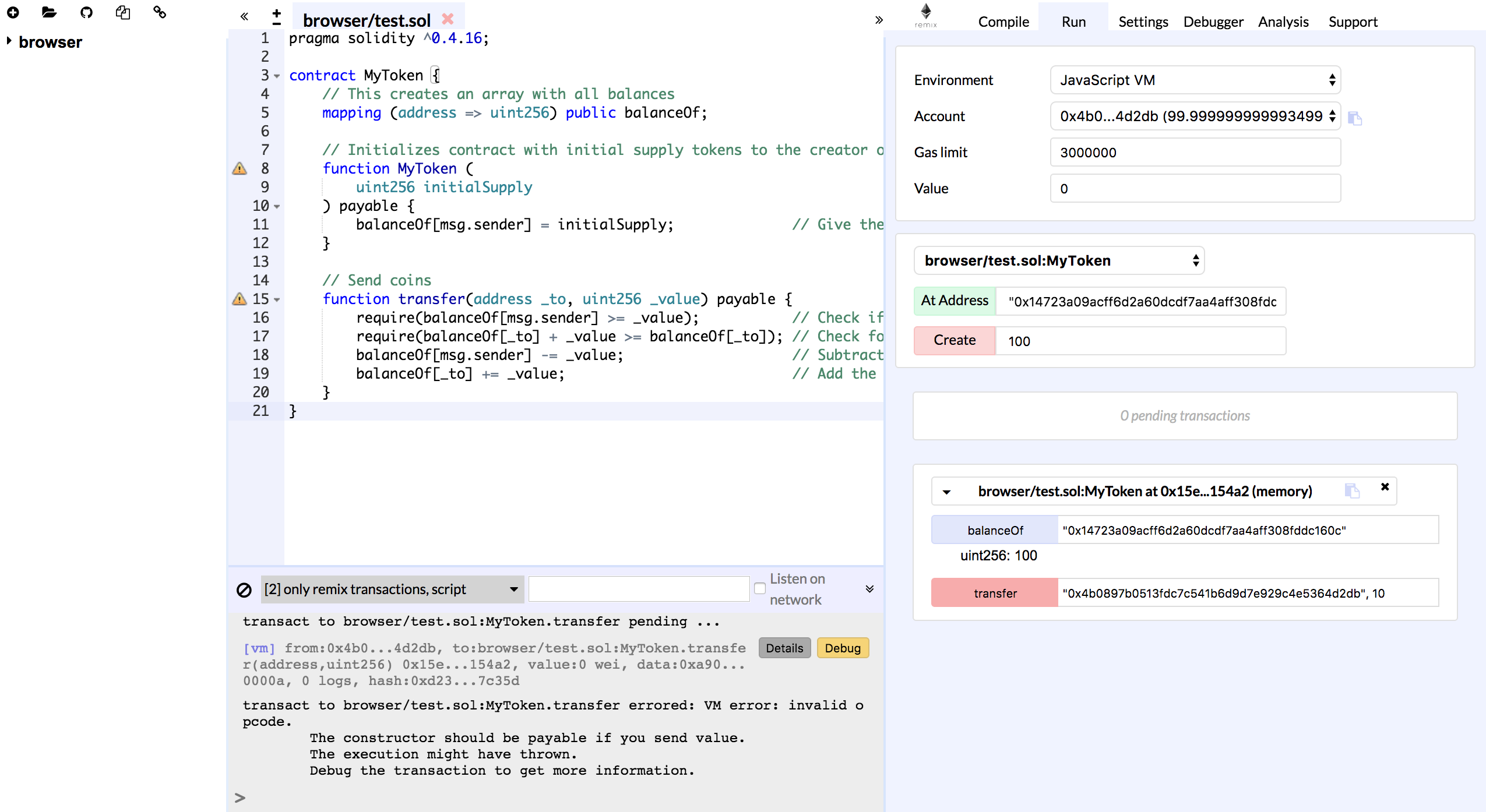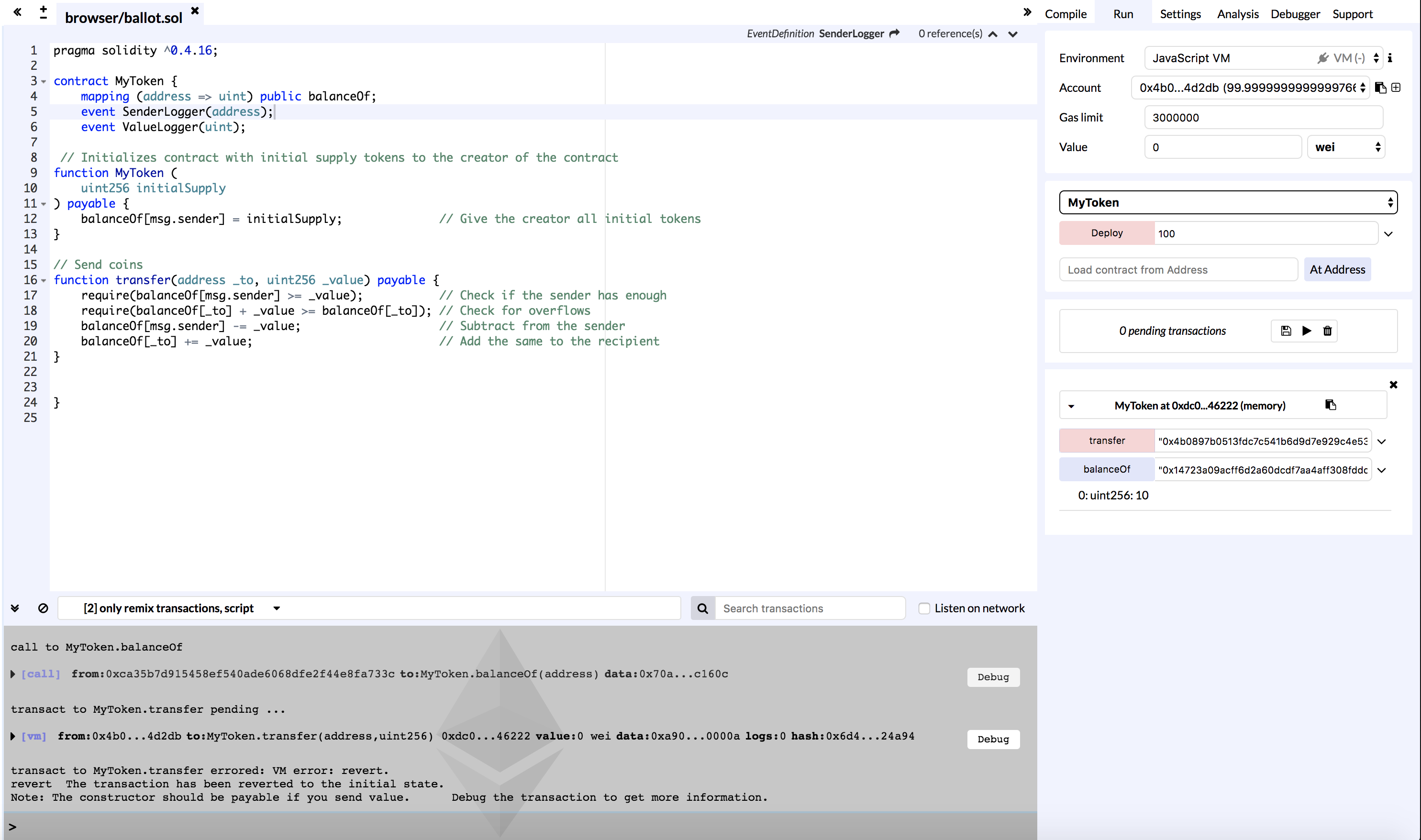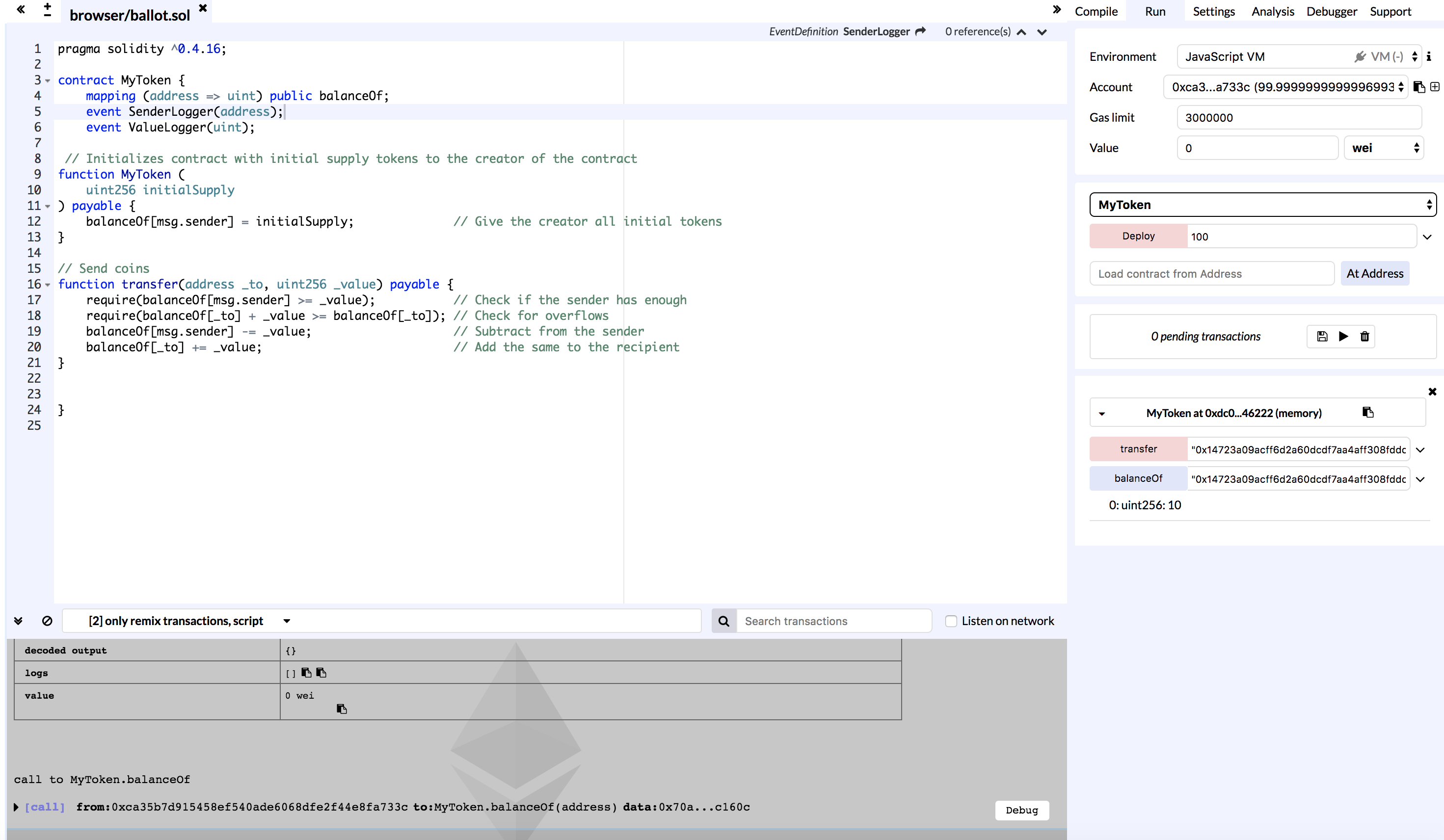pragma solidity ^0.4.16;
contract MyToken {
// This creates an array with all balances
mapping (address => uint256) public balanceOf;
// Initializes contract with initial supply tokens to the creator of the contract
function MyToken (
uint256 initialSupply
) payable {
balanceOf[msg.sender] = initialSupply; // Give the creator all initial tokens
}
// Send coins
function transfer(address _to, uint256 _value) payable {
require(balanceOf[msg.sender] >= _value); // Check if the sender has enough
require(balanceOf[_to] + _value >= balanceOf[_to]); // Check for overflows
balanceOf[msg.sender] -= _value; // Subtract from the sender
balanceOf[_to] += _value; // Add the same to the recipient
}
}
The following error occurs when I try to run the above code in Remix to transfer a certain amount of coins to another address:
transact to browser/test.sol:MyToken.transfer errored: VM error: invalid opcode.
The constructor should be payable if you send value.
The execution might have thrown.
Debug the transaction to get more information.
Here is the screenshot of the page :

Please help me !! Thanks


